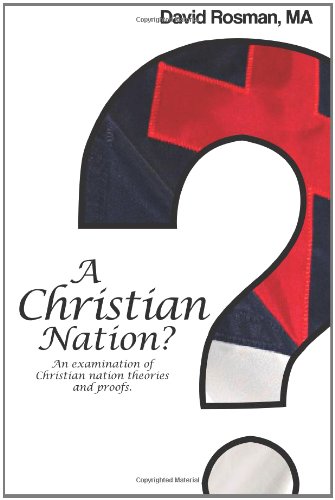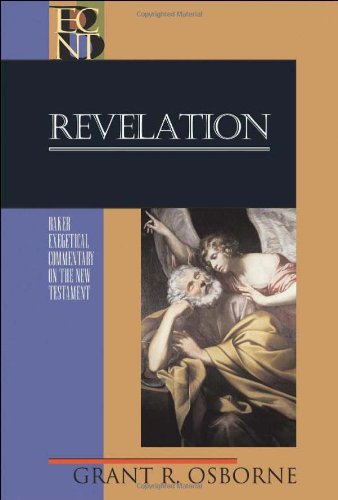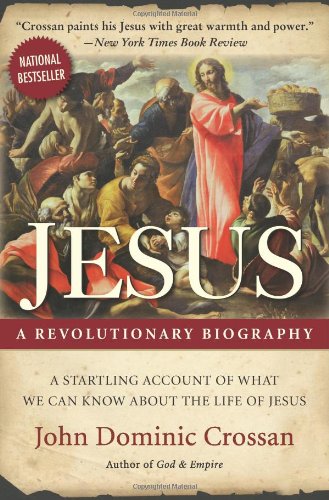Exodus 16:2-3, Those Grumbling Travelers
In the desert the whole community grumbled against Moses and Aaron. The Israelites said to them, “If only we had died by the LORD’s hand in Egypt! There we sat around pots of meat and ate all the food we wanted, but you have brought us out into this desert to starve this entire assembly to death.”
//Just shortly after their miraculous escape from Egypt, and immediately after a joyful celebration of their deliverance, the children of Israel began to grumble that they were hungry. Odd: When they left Egypt, they took with them “large droves of livestock, both flocks and herds.” So why didn’t they stop grumbling and just kill a cow?
Perhaps the cow had become a sacred symbol to them. Perhaps they saw these cattle as “gods,” the very ones they had worshipped during their stay in Egypt. Recall that it wouldn’t be long before they constructed a golden calf.
But that doesn’t answer the question of why Moses didn’t just demand that they shut up and eat the food they brought. More likely, their raucous victory celebration, when the Egyptian army all died in the Red Sea, resulted in a feast to end all feasts, and they ate all their cattle right off the bat.
Good vacation planning, guys.
Book review: Lion’s Honey, the Myth of Samson
by David Grossman
★★★★★
I never liked Samson. I’ve said before that if the two of us meet someday in heaven, there will probably be a personality clash to end all clashes. I’m hoping that my new heavenly body won’t be quite so easy to beat up.
Then I read David Grossman’s little book. David carries us deep into the mind–nay, the very heart–of this ancient hero, to uncover what makes him tick. Sampson has been transformed from a turbulent, macho man into a needy, troubled misfit. A muscle-bound one, no less, which makes for an explosive combination.
I like him even less this way. I would shake Delilah’s hand for uncovering his secret. No, not his long hair, but the inner child that longs to be normal, which she then carefully and deliberately manipulates.
Yeah, I’m fine with the tragic ending, Samson deserved it. Nevertheless, David’s clever retelling succeeds in adding life to the myth. Kudos! David draws upon various Hebrew traditions to spice up Samson’s twisted personality, then leaves the poor man without even a decent shrink. How else could the story end?
Sorry, David, I never did feel any sympathy for your guy. But I absolutely loved reading your story.

Jeremiah 10:3-4, The Christmas Tree
For the customs of the people are vain: for one cutteth a tree out of the forest, the work of the hands of the workman, with the axe. They deck it with silver and with gold; they fasten it with nails and with hammers, that it move not.
//Jeremiah, quoting the commandment of God, seems to say “quit cutting down my trees and adorning them with jewels.” As I write this, I’m sitting six feet from my own Christmas tree. Have I joined the ranks of the heathen?
I see this verse trotted out every other year by someone criticizing the Christmas tree tradition, but they fail to read the context of the verse. Puritans wishing to avoid all semblance of pagan influence on their celebration of Christ’s birth may indeed have their arguments against Christmas trees, but the Bible isn’t one of them.
Jeremiah’s concern was not with the tree, but with what the nations around Israel were making out of them. They were chiseling them into gods and overlaying them with gold and silver. They were nailing them down so they didn’t topple over while they worshipped them.
Like a scarecrow in a melon patch, their idols cannot speak; they must be carried because they cannot walk. Do not fear them; they can do no harm nor can they do any good.
Leviticus 14:1-2, How to Heal a Leper
And the LORD spake unto Moses, saying, This shall be the law of the leper in the day of his cleansing:
//Do you really want to know how to heal a leper?
Okay. First, the Old Testament way:
Find a couple birds. Kill one in a vessel over running water. Dip the other one in the blood of the dead one. Sprinkle the dead bird’s blood on the leper seven times, then let the blood-soaked live bird fly away. Wait for the leper to shave off all his hair, including his eyebrows. Next, kill a lamb. Wipe some of its blood on the leper’s ear, thumb, and big toe. Go get some oil. Sprinkle him seven times with oil, again dobbing some of the oil on his ear, thumb, and toe. Do it once more. Then pour what’s left of the oil over the leper’s head. Finally, kill a couple doves. Offer one as a sin offering, and the other as a burnt offering.
Now, the New Testament way:
Mark 1:40-41, And Jesus, moved with compassion, put forth his hand, and touched him, and saith unto him, I will; be thou clean.
Book review: A Christian Nation?
by David Rosman, MA
★★★★★
Separation of church and state in America—fact or fiction? What did our founding fathers really intend? Rosman, a “Jew by heritage, atheist by belief, and Unitarian by affiliation,” steps us through the evidence he collected from proponents of both sides of the debate. He starts out with a lengthy discussion of the “guys in wigs,” and the religious beliefs they espoused. Then he methodically considers the primary founding papers, including:
The Treaty of Tripoli
Do these documents and more betray a Christian underpinning? Or do they encourage religious tolerance? Is the constitution really based on the Ten Commandments? When did God find His way into the Star Spangled Banner, and how did “In God We Trust” turn into our national motto, even adorning our coins? Rosman’s controversial finding: We became a nation “under God” in the 1950’s, when cold war propaganda necessitated our uniting against those godless commies in the USSR.
Rosman’s analysis is very well-organized and actually quite balanced, even when he exposes America’s cold war strategy. His research leads to the expected conclusion: Our nation was NOT founded on Christian beliefs. Although a few early individuals did make efforts to merge religion and government, most of those efforts were met by reason and properly rejected.
It turns out our founding fathers shared a diverse collection of beliefs. Many were Christians, many were Deists, many were careful to give no indication. The settlers who founded our nation may have known their Bible, having come from nations where Christianity was the primary religion, but America was founded on religious freedom. We can’t describe these men in wide brushstrokes, collectively categorizing them all as Christians or Deists or Atheists. That’s as nonsensical as pretending all the writers of the New Testament were Trinitarians or Adoptionists. Different people hold different religious views—whether 2,000 years ago, 250 years ago, or today. And toleration of these differences forms the strength of our nation.
I enjoyed the book and learned a ton, but two annoyances keep me from giving it a five-star review: A bit of a slow start, and an inordinate number of editing errors. I don’t usually let errors influence my ranking, but this one definitely needed a better editor.
—
NOTE: Hooray! I just learned I was given an uncorrected draft/proof edition of the book. The binding and publication date fooled me. I can now happily upgrade my rating to five stars.

Psalm 137:1-4, By the Rivers of Babylon
By the rivers of Babylon, there we sat down, yea, we wept, when we remembered Zion. We hanged our harps upon the willows in the midst thereof. For there they that carried us away captive required of us a song; and they that wasted us required of us mirth, saying, Sing us one of the songs of Zion. How shall we sing the LORD’S song in a strange land?
//Casual Bible readers, unaware of Israel’s history, often miss the desperate atmosphere which produced much of the Old Testament. A number of sections in the Bible were written “in exile;” that is, in the period in which Israel had been destroyed and the Jews were dwelling as captives in Babylon.
In those days, defeat of a nation was more than demoralizing. It was evidence of the impotence of their god. When rival nations fought (I use the word “nation” loosely), their representative gods in heaven warred as well. When Israel lost, first the northern kingdom to Assyria and then the southern kingdom to Babylon, it was as much a religious crisis as national one. Yahweh, the chosen god of Israel, had presumably been destroyed. The Babylonian deities were the victors.
It was in this atmosphere that the above hymn was penned. The Jews, desperate to one day recover their sacred land, refused to believe their god had died. Instead, they concluded, they were being punished. They dug in their heels and swore to an even greater code of holiness.
There, in the land of the enemy, they reinstituted the Sabbath, adopted kosher dietary laws, and began practicing circumcision, all in an attempt to preserve the boundaries which kept them a separated people. These laws were specifically chosen to make Jews “different.”
It worked. Their god revived, and when the Persians conquered Babylon a half-century later, a remnant of the Jews remained as a cohesive, consecrated people, and they were allowed to return to their holy land.
Got an opinion? 0 commentsMark 15:23, What was Jesus Offered to Drink?
Then they offered him wine mixed with myrrh, but he did not take it.
//In Mark, the first Gospel written, Jesus is offered a drink of wine mixed with an expensive incense. Myrrh was sometimes added to food to enhance the aroma and taste, and it’s likely the soldiers crucifying Jesus carried a portion of this wine mixture for themselves. Amos 2:8 refers to the “wine of the condemned,” as if its provision were a final kindness. Perhaps in a refusal to lighten the suffering, Jesus refuses their gift.
Matthew, in copying Mark’s story, dramatically changes the atmosphere of the scene. He changes the word myrrh to gall, which generically means just about any bitter substance. Perhaps Matthew doesn’t want any confusion with a “good” gift (he has already explained that the wise men came bringing myrrh to the baby Jesus), but more likely, Matthew is taking liberties with the passage to quote from Psalms 69:21: They put gall in my food and gave me vinegar for my thirst. In Matthew’s version, Jesus takes a sip, and apparently refuses to drink because of its taste.
The confusion between these two accounts actually regards the first of two drinks. Later, in both Matthew and Mark, Jesus is offered another drink from a sponge, this time a wine vinegar, which jibes with John’s account. Jesus is twice offered wine; first, he refuses, then he accepts.
Book Review: Revelation: Baker Exegetical Commentary on the New Testament
by Grant R. Osborne
★★★★★
If you’ve read other books in the Baker Exegetical series, you know pretty much what to expect here: Deep analysis with appreciation for multiple scholarly viewpoints, and every effort made to provide a precise interpretation. Often, this means resorting to the original New Testament Greek, which does make the text difficult to read … especially if you don’t know any Greek! You don’t have to, but if you know just enough Greek to be dangerous, without being a scholar of Biblical languages, this book will be perfect for you.
This approach, with liberal references back to the Old Testament, is particularly appropriate for one book of the Bible: Revelation. Its deep symbolism makes it a daunting book for most Bible readers.
In my own book about Revelation (http://www.thewayithappened.com) I discuss primarily the historical setting of which John of Patmos wrote. I believe the only way to truly understand Revelation is to first immerse yourself into the beliefs and struggles of first-century Christianity in Asia Minor (where the seven churches of Revelation reside). But when you’re ready to dig deeper into the Apocalypse’s Hebrew roots and symbolism, this is a great book … whether read as a complete study or used as a reference. Osborne doesn’t neglect the historical essentials, he just delves much deeper and takes a much more scholarly approach. It must have taken forever to compile. 869 pages with plenty of ink on each.
Five stars for Osborne’s vast, no-nonsense research, a necessity for every Revelation scholar.

Psalm 30:5, God’s Anger
For his anger endureth but a moment.
//I remember singing a hymn in church about how God’s punishment is gentle, and his anger short-lived. Can’t bring the hymn to mind, now, but God’s patience and quick forgiveness is central to most Christian beliefs.
But not all scripture agrees. Here are two verses from the very same Bible book, that don’t seem to jibe:
Jeremiah 3:12, I am merciful, saith the LORD, and I will not keep anger for ever.
In this verse, Jeremiah is told by God to proclaim his merciful nature “to the north” (that is, to Israel, the northern kingdom). God wants Israel to repent, to acknowledge their sin and quit their backsliding. He promises that if they do, his anger will abate.
But they don’t, and God’s forgiving nature undergoes a transformation. When the southern kingdom (Judah) begins to try his patience, God changes his attitude. He revokes their heritage, promising that they will serve their enemies. Why?
Jeremiah 17:4, [F]or ye have kindled a fire in mine anger, which shall burn for ever.
Being a parent can be soooo trying.
Book review: Jesus, A Revolutionary Biography
by John Dominic Crossan
★★★★
Crossan is one of the premier Jesus scholars of today, and this book is quintessential Crossan. It’s a condensed, recently reprinted, more readable version of his 1994 masterpiece, The Historical Jesus.
Crossan’s research is controversial, more focused on the real life of a first-century sage (Jesus) than in the messianic God-man Christianity turned him into. I believe Crossan’s most irritating position (to conservative Christians) is his insistence that Jesus never rose from the tomb … because he was never entombed in the first place. Jesus’ body was probably pulled from the cross and eaten by dogs, with his remains dumped in a shallow grave, like the majority of other Roman crucifixion victims. Nevertheless, Crossan’s portrayal of Jesus is warm and powerful.
This little 200-page book is for people who want a quick introduction to Crossan’s research without tomes or tangents.
















 354 Circles
354 Circles
 603 Goodreads Friends & Fans
603 Goodreads Friends & Fans

 Hello! I'm an author, historical Jesus scholar, book reviewer, and liberal Christian, which means I appreciate and attempt to exercise the humanitarian teachings of Jesus without getting hung up on any particular supernatural or religious beliefs.
The Bible is a magnificent book that has inspired and spiritually fed generations for thousands of years, and each new century seems to bring a deeper understanding of life’s purpose. This is true of not only Christianity; through the years, our age-old religions are slowly transforming from superstitious rituals into humanitarian philosophies. In short, we are growing up, and I am thrilled to be riding the wave.
I avidly read all thought-provoking religion titles. New authors: I'd love to read and review your book!
Hello! I'm an author, historical Jesus scholar, book reviewer, and liberal Christian, which means I appreciate and attempt to exercise the humanitarian teachings of Jesus without getting hung up on any particular supernatural or religious beliefs.
The Bible is a magnificent book that has inspired and spiritually fed generations for thousands of years, and each new century seems to bring a deeper understanding of life’s purpose. This is true of not only Christianity; through the years, our age-old religions are slowly transforming from superstitious rituals into humanitarian philosophies. In short, we are growing up, and I am thrilled to be riding the wave.
I avidly read all thought-provoking religion titles. New authors: I'd love to read and review your book!
 Hi! While Lee writes the articles and reviews the books, I edit, organize, and maintain the blog. The views expressed here are Lee's but I'm his biggest supporter! :-)
Hi! While Lee writes the articles and reviews the books, I edit, organize, and maintain the blog. The views expressed here are Lee's but I'm his biggest supporter! :-)
Connect With Me!